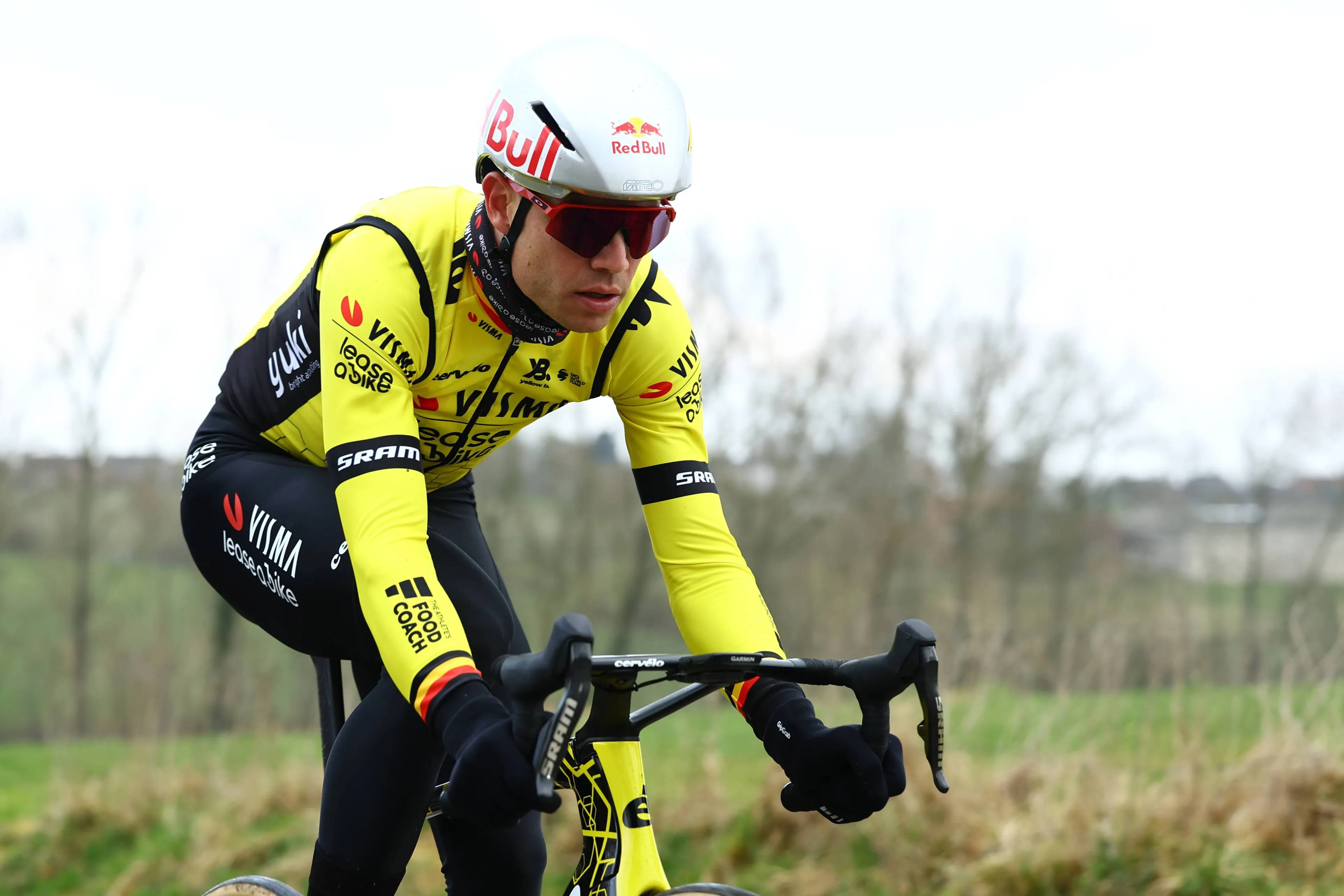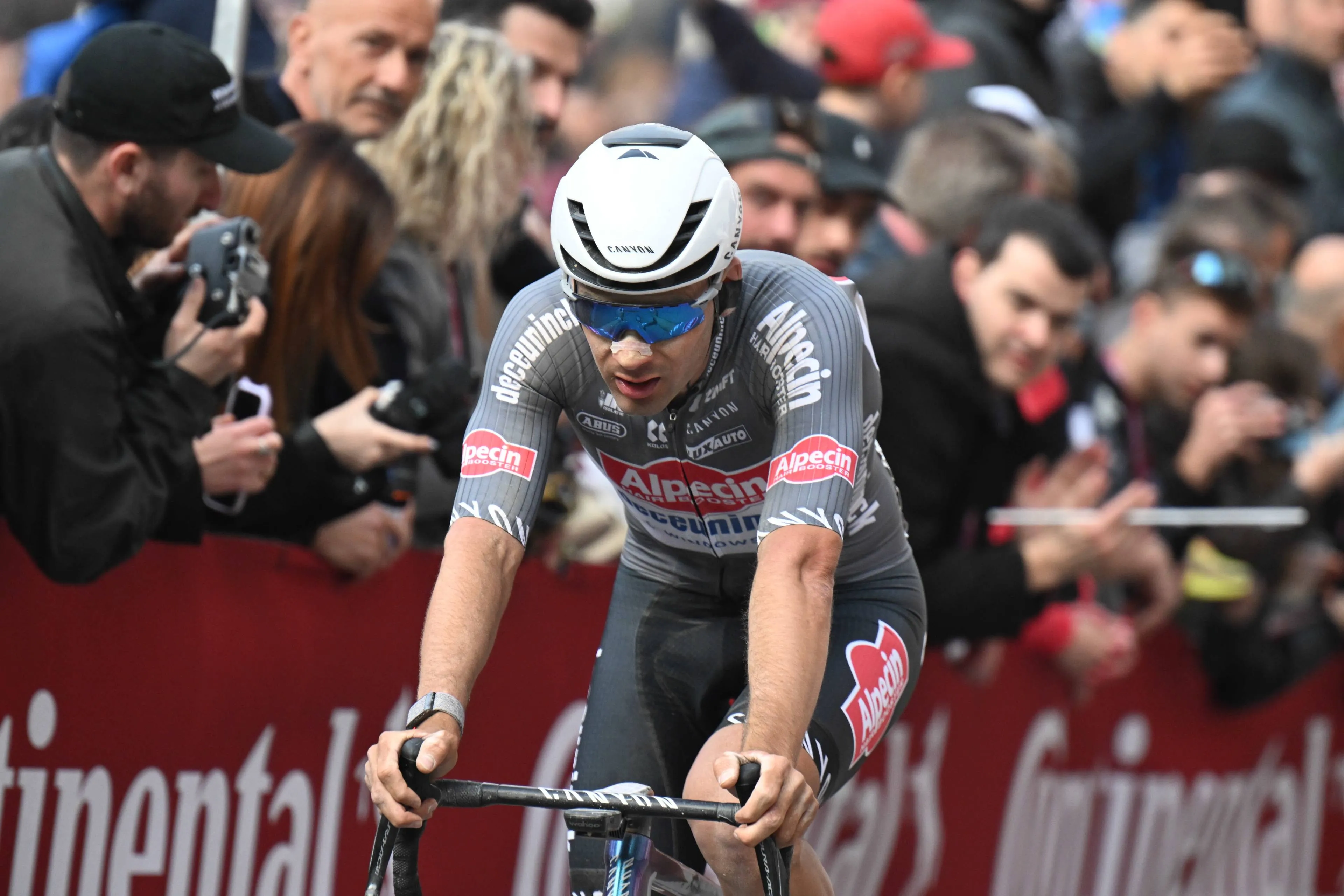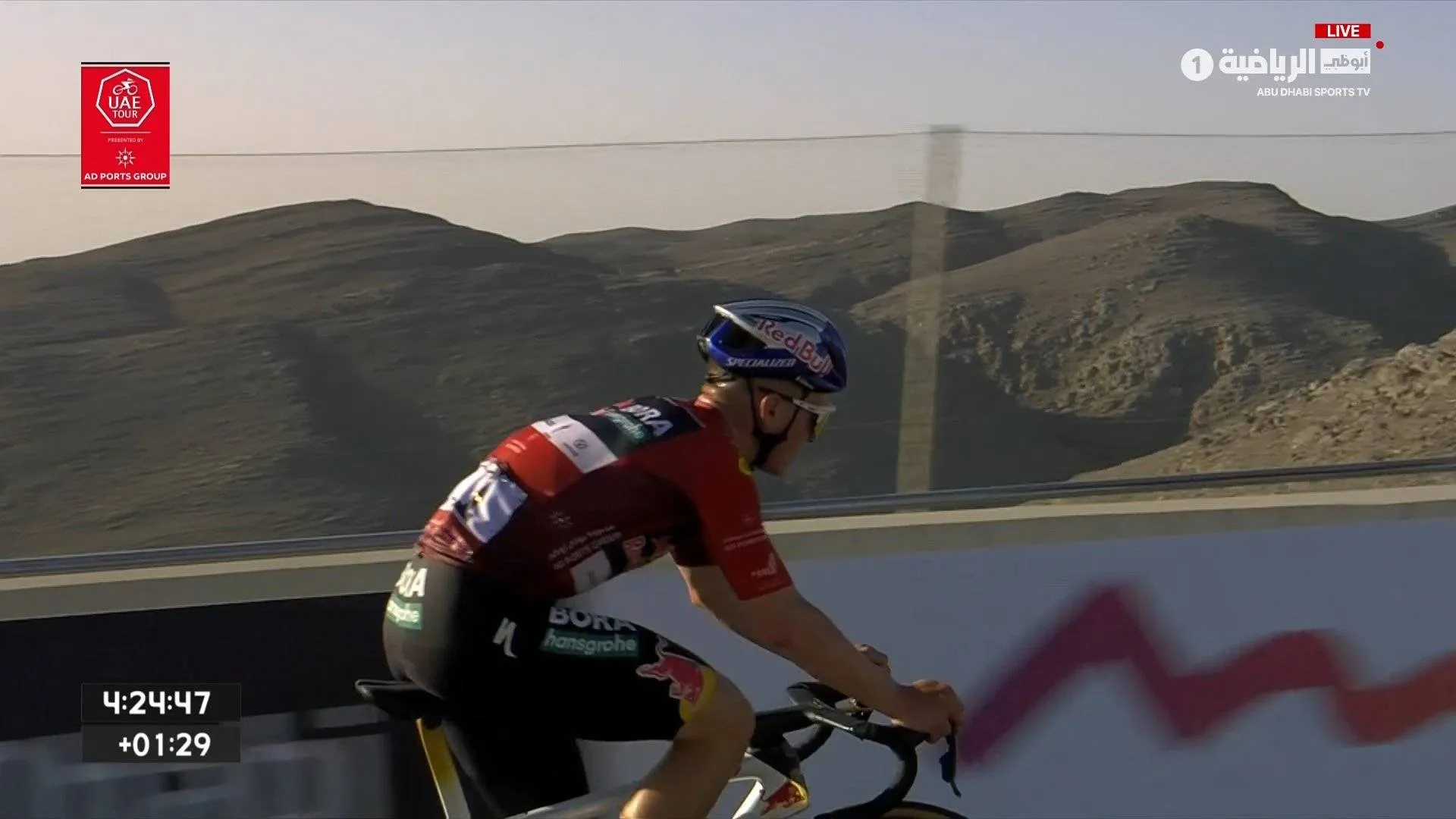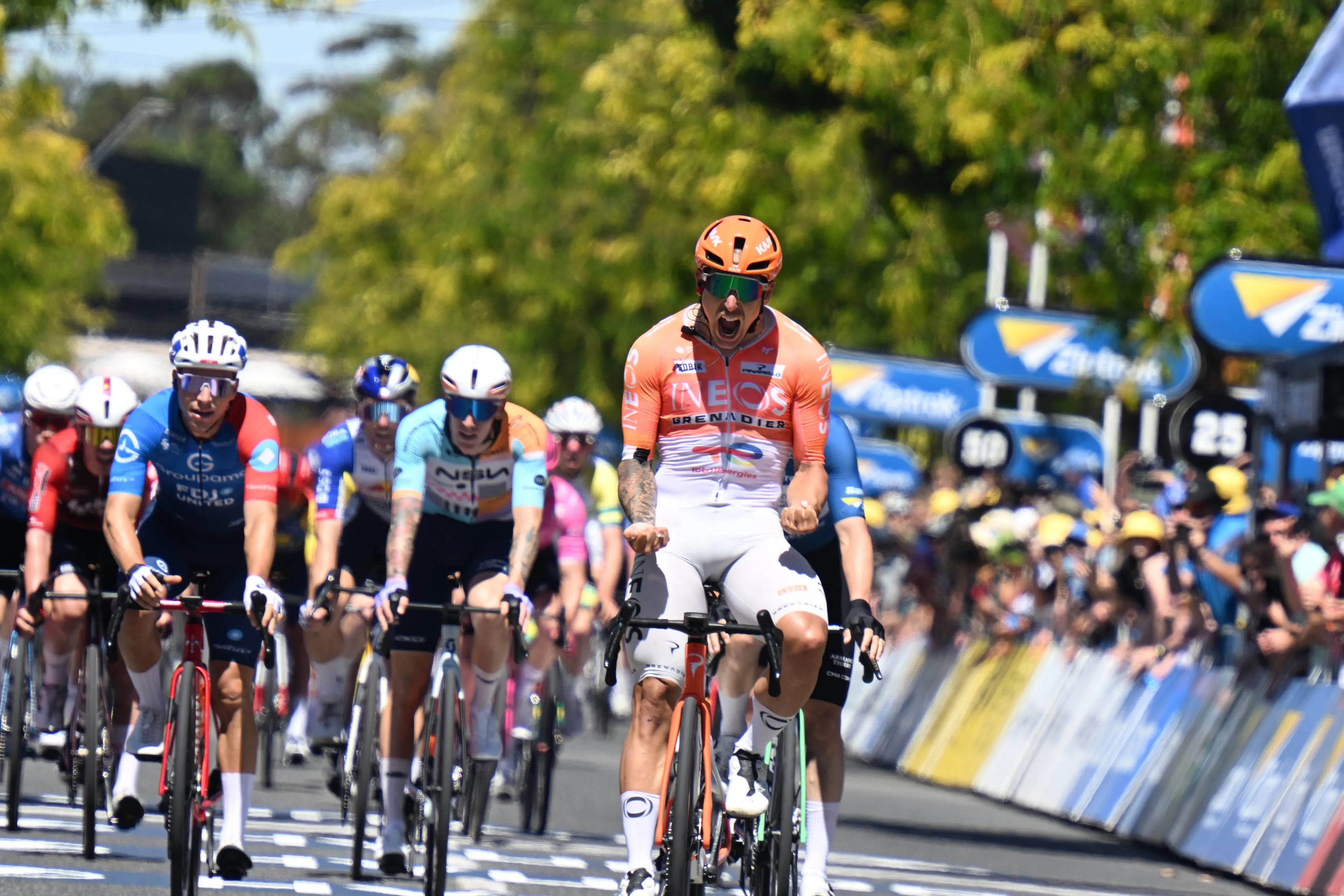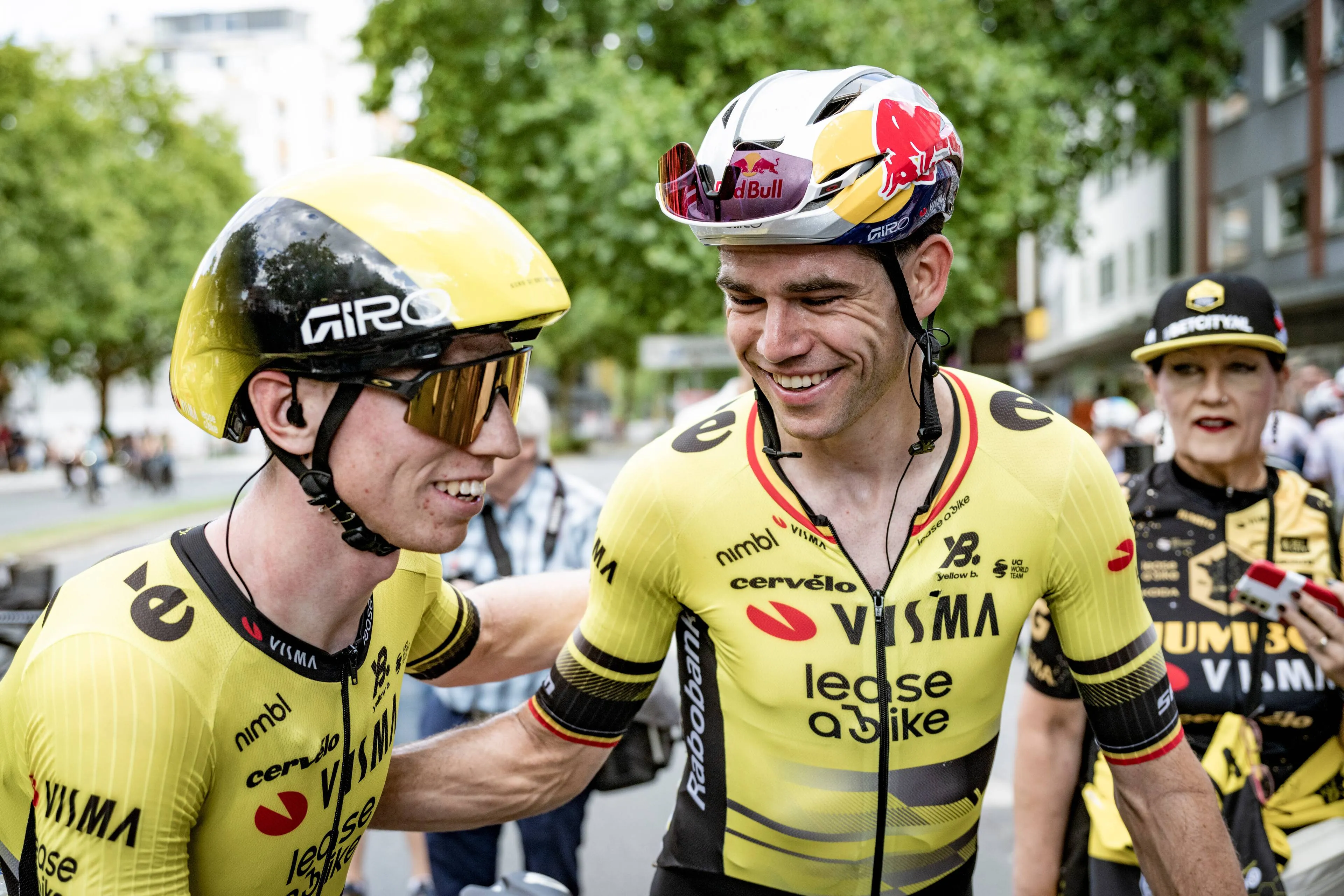"We shouldn't take the beauty out of sprinting" - Sprinters call for more strict, but above all fair and consistent awarding of yellow cards
CyclingMonday, 10 March 2025 at 02:00
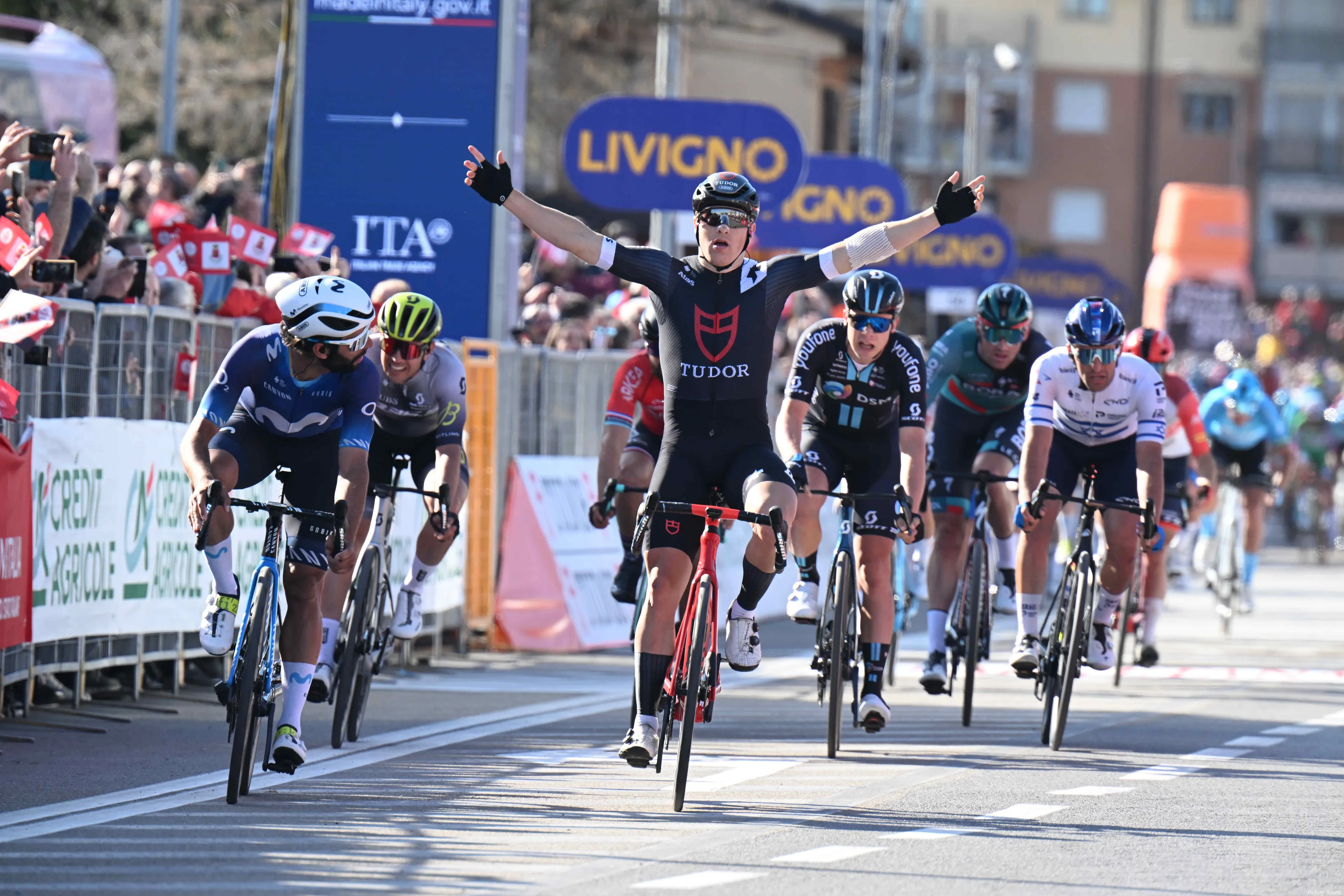
The UCI added yellow cards to its range of punishments that can be issued to riders and sports directors for against-the-rules behaviour during races. So far, the most controversy was sparked by the inconsistent judging of similar sprint incidents.
"If you get a yellow card, you're immediately on edge," Elmar Reinders, sprint preparer for Dylan Groenewegen at Team Jayco AIUIa, estimates the risks in a discussion on NOS. Tudor's sprinter Arvid De Kleijn adds: "Then you think twice."
Read also
When you get a yellow card and when only a fine or relegation - rules that also remain - is vague according to Reinders. "The most important thing is that there are clear rules. Not cheering when a teammate wins a bunch sprint, that is a clear rule." It earned Kaden Groves yellow in Kuurne - Bruxelles - Kuurne.
"But what about keeping your line? When you come from behind, you always have to go left or right." Jasper Philipsen escaped yellow in the UAE Tour after a course deviation and the jury only put him back in the results, while Van Poppel did receive a card in a similar incident.
"We shouldn't take the beauty out of sprinting," says De Kleijn. "Everything goes to the limit. That's the beauty of sprinting. That's why people watch. Closing the door a little bit, that should be possible. It shouldn't be the case that absolutely nothing is allowed. If it gets really dangerous or someone pushes someone else towards the fences, then the yellow card is good for that."
"I haven't noticed any difference at all," says Cees Bol. "So far it hasn't really helped. But if I get two yellow cards, I might start the sprint a little differently. Behavioral change could still happen," adds De Kleijn.
Read also
Jury need to look farther than just final meters
According to Bol, there is too much emphasis on the behavior of riders and less on that of race organizers. "There are also rules about the course and they are simply not enforced properly. Two weeks ago there was a big crash because there was a speedbump in the last hundred meters. Someone came up with that and approved it. Jury members who let that happen cannot get cards."
Most of the yellow cards issued in relation to sprints were awarded for rider behaviour in final hunders of meters, something that doesn't seem fine to Reinders: "I think that the focus is mainly on the last 200 meters and not enough on the last five kilometers. Then a lot more people get fined. If you want to be strict and put cards on it, you have to do it the entire race, not just in the last 200 meters."
"What happens in the preparation of the sprint can sometimes be much crazier," De Kleijn agrees. "We are now mainly looking at the sprinters themselves and that is good, mind you, but Elmar is right. Before that, a lot of things happen that are sometimes unacceptable."
Bol suggests that the current jury members are often way out of touch with actual cycling. The XDS Astana rider suggests a solution: "Preferably a committee of former riders." And, adds de Kleijn: "Former sprinters who have acted at the highest level, who know what goes on in the peloton, what is beyond the limit and what is part of sprinting."
Read also
claps 0visitors 0
Just in
Popular news
Latest comments
- Great champion Remco but his profile is more suitable for Ardennes-like races and tour with no very hard climbs. Not only Tadej and Vingegaard, there are a lot of younger cyclists (del Toro, Ayuso, maybe Seixas, Nordhagen and others) that will soon be big GC boys.
 maria2024202418-02-2026
maria2024202418-02-2026 - Evenopoel 1st real test, and he failedZamorano18-02-2026
- Remco is not the natural climber that riders like Tadej or Jonas are, no matter how much he trains and prepares for it. Yes, you can TT your way up moderately steep hills, but when the gradient gets super steep, he just can't keep up.
 santiagobenites18-02-2026
santiagobenites18-02-2026 - So against the better riders and a long mountain, Remco cracked. Sorry but way away from Pog and Jonasabstractengineer18-02-2026
- “I was portrayed as the devil" Bruyneel was really a talented team manager. His minor flaws: "coordinated, well-funded, and sophisticated doping regime" "hand-in-hand in implementing the team-wide doping programme" "was involved in trafficking and administering prohibited substances and methods, including EPO, blood transfusions, testosterone, human growth hormone, and cortisone. Teammates testified that nothing significant happened without Bruyneel's knowledge and approval." "fostered an environment where doping was considered a "fact of life" and necessary for success, effectively making it a condition of survival on the team. He also participated in or assisted with the cover-up of positive tests and doping violations." Those quotes show Bruyneel's true talent.Cyclingnut18-02-2026
- Fed up hearing "their" voicesslappers6618-02-2026
- When you join Ineos , learning , time , no pressure go out of the windowabstractengineer18-02-2026
- The UCI screws up againcaptmike18-02-2026
- No matter what people say - I'll watch it. And I bet all the complainers will do it too....averagecyclist18-02-2026
- Exactly what I'm thinking about it. Moreover Van Glis had a lot of time to rethink his situation but decided to stay where he was.averagecyclist18-02-2026
Loading
Write a comment


